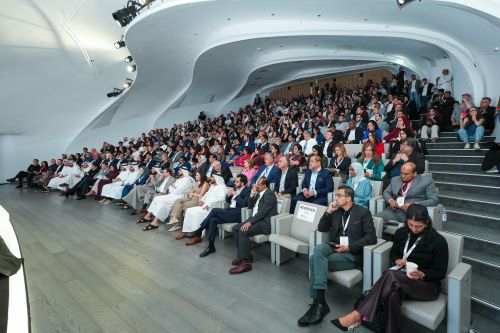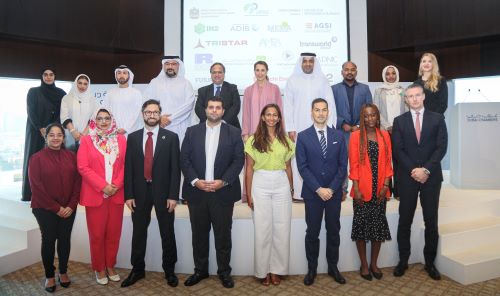So much to see and do in Valencia – the World Design Capital 2022
With Valencia brandishing its long-standing legacy of design it comes as no surprise that the famed Spanish city is the World Design Capital 2022 (WDC 2022), as designated by the World Design Organization (WDO).
Headquartered in Montreal, Canada, the WDO in 2019 selected Valencia to be the WDC 2022 based on the two-millennium-old city’s design prestige, stemming from its Mediterranean culture, heritage, and unique way of life that revolves around design.
WDC is a biennial designation celebrating cities around the globe that use design to improve economic, social, cultural, and environmental development. Through a year-long programme of events, each WDC-designated city showcases best practices in sustainable design-led urban policy and innovation that improves the quality of its people’s life.
Valencia is the eighth global city to attain WDC status, following Torino (Italy) in 2008, Seoul (South Korea) in 2010, Helsinki (Finland) in 2012, Cape Town (South Africa) in 2014, Taipei (Taiwan) in 2016, Mexico City (Mexico) in 2018, and Lille Metropole (France) in 2020. San Diego-TIjuana (USA/Mexico) has been awarded the WDC designation for 2024.

The year-long WDC Valencia 2022 programme encompasses all disciplines of design centred on six key themes: health and well-being, didactics of design, economy and innovation, heritage and identity, environmental sustainability and equity, inclusion and diversity.
These six themes are supported by a wide variety of design-led events, exhibitions, workshops, openings, launches, congresses and panels – all of which dive into the design ecosystem of Valencia.
‘Reward for decades of design excellence’
Xavi Calvo, Managing Director, World Design Capital Valencia 2022, said: “Being chosen as the 2022 World Design Capital is a reward for several decades of consolidation of a sector as unique and admired as the design industry in the Valencia region. A land brimming with highly creative people that was already publicly admired well beyond our regional borders. Valencia has reached a point of maturity in design that it is now able to showcase to the rest of the world.”
Valencia, the culturally vibrant Mediterranean city, is using its unique status as WDC 2022 to collaborate with the public and private sectors locally, regionally and nationally, to communicate and empower citizens, within and outside traditional design disciplines, to celebrate design and its power to improve the quality of life.
Through the ages Valencia has become a prime example of effective and strategic use of design in public policy, which has greatly benefitted industries, infrastructure and mobility in the port city.
ASCER members’ full support
In this context, ASCER (Spanish Ceramic Tile Manufacturers’ Association) is lending the substantial support of its 130+ members to the year-long WDC Valencia 2022 programme, by showcasing the unique design creativity, sustainable innovation and contemporary trends spanning the entire Spanish ceramic tile manufacturing industry.
According to Vicente Nomdedeu Lluesma, President of ASCER, and CEO of Azteca, the Castellón headquartered high-quality ceramic wall and floor tile company, Valencia, being designated the World Design Capital of 2022 is indeed a great honour for the entire Valencia community, spearheaded by the professional designers, architects, interior designers and illustrators who have singularly and collectively created a unique design culture that now extends throughout the whole region of Valencia.
One of the main outcomes of WDC Valencia 2022 is the institutionalisation of design based on teaching, management and awareness by public and private entities. This entails the raising of awareness, so that design becomes part of the institutional decisions that are taken by political authorities. The mission? To value Valenician design, its hiring, its importance and the value it has as a tool for social transformation.
Projects such as the Fundacio del Disseny de la Comunitat Valenciana, the adhesion of Valencia to the New European Bauhaus, the promotion of a Public Procurement Guide for Design, the development of the culture of vocational training and the creation of workshops for the professional design and manufacturing of public furniture are just some of the tangible examples of what WDC Valencia 2022 has already achieved.
Agora Valencia: Heart of WDC Valencia 2022
On June 13, 2022, MENews247 was invited as an international media guest by ASCER, to visit the all-new Agora Valencia design project located in the Spanish city’s world-famous Plaza del Ayuntamiento public square.

Formally opened to the public on June 17, 2022, the Agora Valencia pavilion functions as the strategic centre of WDC Valencia 2022 – to showcase curated year-round programmes where the story of Valencian design can be seen and experienced – while also encompassing the city’s industry, that of craftsmanship and that of the structuring of an entire territory, and to do so with a future towards sustainability and materials.
The Agora Valencia pavilion represents the joint work of Miguel Arraiz, architect, creator and project director of WDC Valencia 2022, together with Arqueha Arquitectura y Urbanismo, responsible for technical development, and with the collaboration of Cosín Studio.

The building’s façade was developed by Inalco, and Wandegar, the roof by Manolo García Artistic Carpentry, lighting by Radiante Creative Studio, and 3D and CGI visualisation by Quatre Caps. The structuralist was Josep Martí, and the construction company was ATG Developments.
The Agora Valencia project is supported by the Valencia City Council, which has the support of the Provincial Council of Valencia, La Marina de Valencia and the companies Inalco, Wandegar and iGuzzini.
In his opening day address of the Agora Valencia, Joan Ribó, Mayor of Valencia, said: “Starting today [June 17, 2022], our Plaza del Ayuntamiento has a new building to admire and enjoy. Agora Valencia tells a lot about what we are, with an architecture that speaks of the Valencian industry through its ceramics, of the waves of the sea through its roof, which is, in turn, a tribute to our festivals: the Fallas.
“A place of shade and meeting, of comfort and information, where its design invites everyone who passes by to make it their own. A space that also offers the first shade of the square. Moreover, its design and architecture, the materials that compose it, guarantee a much more pleasant thermal sensation than in the rest of the square,” Ribó added.
According to Xavi Calvo, director of WDC Valencia 2022: “The city of Valencia is the result of more than a century of design. Urban, architectural, artistic, product, interior and graphic design that has allowed it to earn its place as a city with a global vocation.
“In Agora Valencia, we bring together the Valencian society, tourism, and people, to encourage everyone to participate and to know what we are from our own venue. A place from which to become aware of the presence of design in our daily lives, its role in the city model we want, and its importance in the projection of our industry and economy into the future,” Calvo added.

From mid-June 2022 onwards Agora Valencia serves as a central meeting point in which Valencia inhabitants and visitors alike can enjoy Valencian design and get to know professionals, entities, institutions and companies rooted in the culture of creativity and innovation.
The outdoor venue also facilitates the exchange of ideas and acts as an open forum for round tables, conferences and presentations on design, educational workshops, and both social and professional meetings.
Until the end of 2022 Agora Valencia will present the WDC Valencia 2022 calendar of events, including live media sessions, professional presentations, debates on how design improves people’s lives and meetings to reflect design’s role across areas such as urban planning, ecology, international projection, the image of the city, sustainable growth and internationalisation.
Bespoke design pavilion
The 24x10x9m (LxWxH) beige-coloured Agora Valencia structure fuses tradition and avant-garde design, crafts and industry, using only wooden rods and MDI, a material similar to ceramics. The one-of-its-kind building is encased with a skin developed by the companies Inalco and Wandegar from pieces of MDI placed perpendicularly on the façade to filter the natural light as the day progresses.
In essence, light serves as an additional construction material in the whole structure, and other elements such as the upper deck, of great aesthetic power, also contribute to the interesting play of light’s progression in the structure.
The piece of brace that forms the pavilion’s roof is made by Manolo García Artistic Carpentry. The roof element simulates the waves of the Mediterranean Sea in reference to Valencia city being a historical point of union between different cultures.

The Inalco MDI signature is present on the façade and ceiling of the pavilion. MDI is a sustainable product as it is formulated with 50% recycled material from its own manufacturing process, while saving 70% of water and avoiding the use of solvents.
Wandegar, the engineering company that specialises in innovative technical applications for ceramic ceilings, devised an architectural envelope solution for the Agora Valencia structure that stands out for its simplicity and lightness without compromising safety or the modularity of the format.
The Arqueha studio, coordinator of Plan Zero for the climate transition of three neighbourhoods in the city of Valencia, conducted the technical development of the project by applying prefabrication and sustainability parameters.
With the use of digital tools, together with parametric design, all the components of the building were constructed in an industrial manner, making each of the frames that support the slats unique, prefabricated and removable.

Agora Valencia is also a space that adheres to the thermal comfort of visitors. Its design factors climatic variables such as air circulation and solar radiation, and directly influences the feeling of visitors’ thermal comfort in relation to the rest of the wide open Plaza del Ayuntamiento square.
The Agora Valencia’s solar protection, formed by the skin of vertical slats, reduces the amount of solar radiation coming into the structure from the east and west, while the wooden roof acts in a similar way with the light coming from the south, while permitting natural ventilation of the building, despite Valencia’s hot summer weather.
The sum of solar protection and ventilation manage to lower the comfort temperature inside the pavilion by up to 10 degrees compared to any other point in the Plaza del Ayuntamiento square, and all this without energy input and therefore with zero carbon dioxide emissions.
In terms of its legacy WDC Valencia 2022 is poised to revolutionise the city by placing design as a tool for transformation far beyond 2022.

In addition to being the World Design Capital 2022, Valencia, with its population of 800,180 inhabitants, is also the European Capital of Smart Tourism 2022, along with Bordeaux (France). The European Capital of Smart Tourism initiative of the European Commission recognises outstanding achievements by European cities as tourism destinations in four categories: sustainability, accessibility, digitalisation as well as cultural heritage and creativity.
Valencia, which is located on the south-east coast of Spain, is reachable from the Gulf countries by Swiss, Lufthansa, Turkish Airlines, KLM, Emirates, and Iberia, via the aviation hubs of Zurich, Frankfurt, Istanbul, Amsterdam, Dubai, Barcelona, and Madrid.

Agora Valencia pavilion credits:
Design and architecture:
Miguel Arraiz + Arqueha Arquitectura y Urbanismo
Technical advice:
Cosín Studio
Structuralist:
Josep Martí
Construction:
ATG Developments
Roof:
Manolo García Artistic Carpentry
Facade:
Inalco + Wandegar
Lighting:
Radiante Creative Studio
3D and CGI visualisations:
Quatre Caps
Last Updated on 1 year by Arnold Pinto













